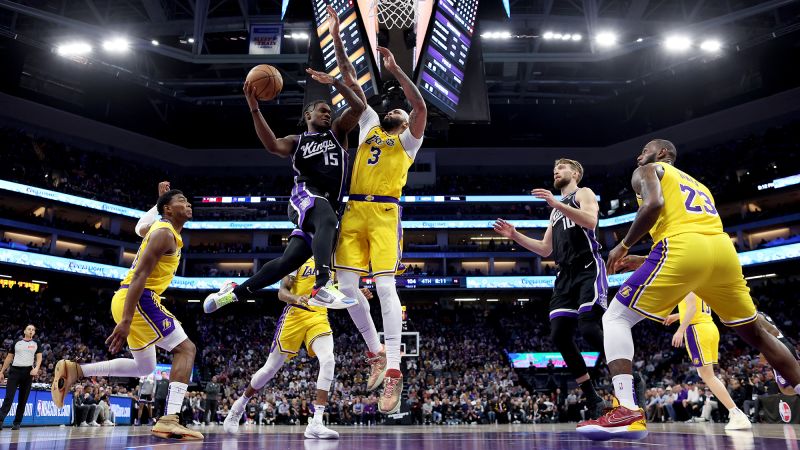David Zaslav’s statement in 2022 that Warner Bros Discovery (WBD) does not need the NBA seems to not align with Wall Street’s sentiments. WBD’s stock price dropped nearly 10% after a report in The Wall Street Journal suggested that the media conglomerate might have to pay more to maintain NBA broadcast rights, reaching an all-time low of $7.36 per share. Industry experts stress the importance of WBD retaining the NBA broadcast rights, as losing them could have significant repercussions on the company.
NBCUniversal is reportedly prepared to pay around $2.5 billion yearly to broadcast NBA games, which is double the current fee paid by WBD. This bid could potentially threaten WBD, as NBA games have been a cornerstone of their programming on TNT. WBD has made substantial investments, such as a 10-year deal with Charles Barkley worth up to $200 million, around maintaining these rights. Losing the NBA rights could impact WBD’s ability to charge distributors for their channels without the leverage of popular sports content.
With the recent deal with Disney and Fox Corporation to launch a sports streaming service, losing NBA rights could jeopardize this business venture. Additionally, HBO Max, WBD’s flagship streaming service, has promoted live sports as a key feature to attract subscribers. Losing the NBA rights would be a setback for this pitch and could have broader implications for WBD’s streaming strategy. Both WBD and NBA declined to comment on the situation.
While there is still a possibility for WBD to secure some NBA games or outbid NBCU, the current situation poses challenges for the company. The loss of NBA rights could be a blow to WBD’s CEO Zaslav, who has faced difficulties in convincing investors about the company’s streaming platform vision. Since WBD started trading on Wall Street, the stock has seen a significant decline, reflecting investor concerns. Zaslav’s and Wiedenfels’ compensation packages, despite the company’s struggles, have raised eyebrows among investors.
Legacy media companies like Disney and Paramount Global are also facing challenges in the changing media landscape, with streaming services disrupting traditional business models. Securing sports rights has become increasingly important for these companies as they try to attract audiences to their platforms. Live sports continue to be a significant draw for traditional cable television packages, making it crucial for companies like WBD to retain these rights to stay competitive. For Zaslav and WBD, losing the NBA rights at this critical time could further impact their standing in the industry.
Overall, the battle for NBA broadcast rights highlights the challenges faced by legacy media companies in adapting to the evolving media landscape. Live sports content remains a key asset for attracting audiences and generating revenue, especially amid the rise of streaming services. The outcome of the negotiations between WBD and the NBA could have far-reaching implications for the company’s future and its efforts to compete in the increasingly crowded streaming market.













